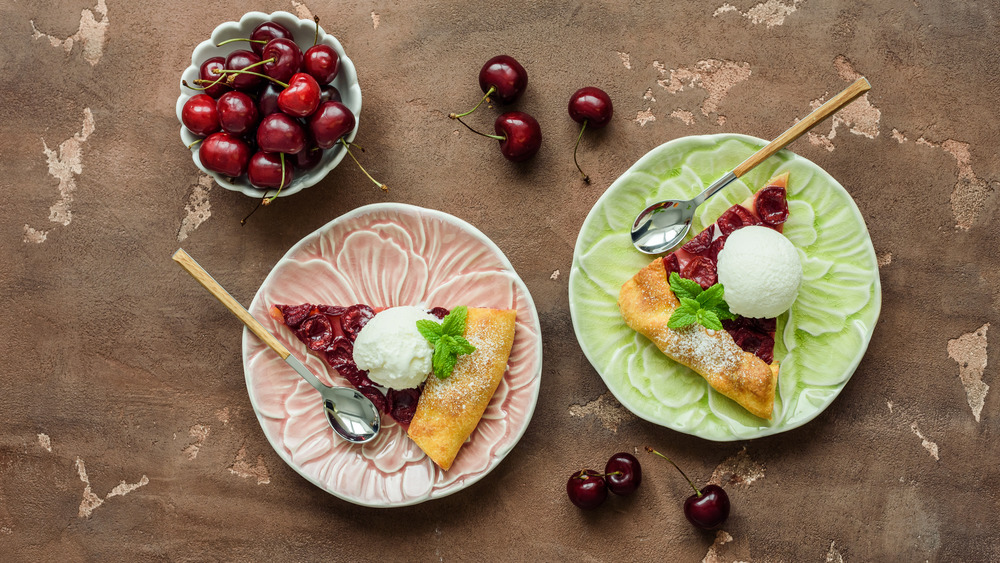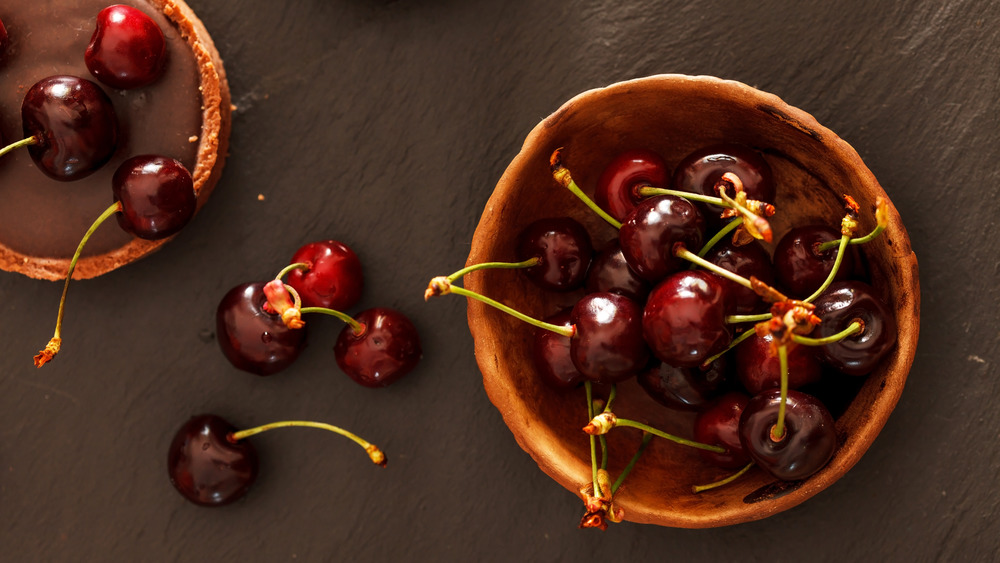Why You Should Be Concerned About The FDA's Latest Proposal On Frozen Cherry Pie
We've always considered the Food and Drug Administration as our first line of defense against potential problems involving food safety. So we can be forgiven for wondering what inspired Scott Gottlieb, former FDA administrator to tweet: "BREAKING. NEW PROPOSED RULE: Thanks to the hard work of my FDA team in 2018, the Federal government will no longer be regulating the contents of frozen cherry pie. The American people are free add extra fruit, sugar, and make the crust especially thick." In his tweet, he also added a link to the FDA proposal to revoke the standards of what makes a frozen cherry pie what it is.
The tweet brings to light a complaint by the American Bakers Association, which says it is being unfairly governed by regulations drafted more than a century ago. In a statement, the industry trade association said, "These standards [once] gave consumers the peace of mind that their food contained the proper ingredients as the food supply was becoming more industrialized. The standards defined bread as this, pie as that, and so on. [But] The regulation did not anticipate a few things...first is the intense innovation that happens in all industries – even in what some people consider the ancient art of baking." The association also argues that by keeping standards which they call "antiquated," bakers are being punished for making products that they say "draw outside the lines."
The FDA wants to revoke standards for making commercial cherry pie
Turns out, the FDA wants to revoke the standards of quality that govern the manufacturing of frozen cherry pie, for the simple reason that the FDA doesn't think the standards are necessary to promote honesty and fair dealing on behalf of the American consumer. In a submission published on the Federal Register, the FDA also said revoking the manufacturing standards would in their words, "provide greater flexibility in the product's manufacture." The ABA claims the standards are hampering both innovation and the ability of its bakeries to create more jobs, and as an example, that bakeries are meant to comply with certain air quality standards, and that cost plants and operators money — which it said could be better spent on promoting growth.
Among the regulations the FDA is looking to revoke, the list includes ensuring that commercial cherry pies are made with 25 percent of fruit, and that "not more than 15 percent of the cherries in the pie are blemished with scab, hail injury, discoloration, scar tisssue, or other abnormality" (via Twitter).
In an interview with Fox News last year, Rob Mackie of the American Bakers Association said, "The pie bakers that are making frozen cherry pies are exceeding the standards, and so there's not been an issue. It really helps to unshackle the industry from the regulatory overreach."
The internet is not too happy with this new proposal
The internet is up in arms over the proposal, saying that the change will leave consumers open to potential abuse by food companies aiming to increase profits by cutting corners. One person responded to Gottleib's Twitter post, saying: "I'm having trouble figuring out if this is some kind of holiday joke or an actual tweet from a former government official about how he made it ok for Sara Lee to put whatever the hell they want in their frozen cherry pies & thinking that's some kind of accomplishment."
Another remarked: "Truly draconian stuff, here. Good thing the humble bakers making frozen cherry pies (which is the only product this applies to) won't have to kowtow to such fiendish rules as "25% of the filling by weight must be actual cherries."
Using blemished cherries could be the least of our problems, because in a rather graphic response to Gottleib, another user pointed out that, "The issue isn't what the American people want to put in cherry pie. It's what manufacturers will or won't put in the pies to save a penny. Leave out the cherries, they're expensive. Replace them with rat feces." This may be a gross exaggeration, but we get it.


